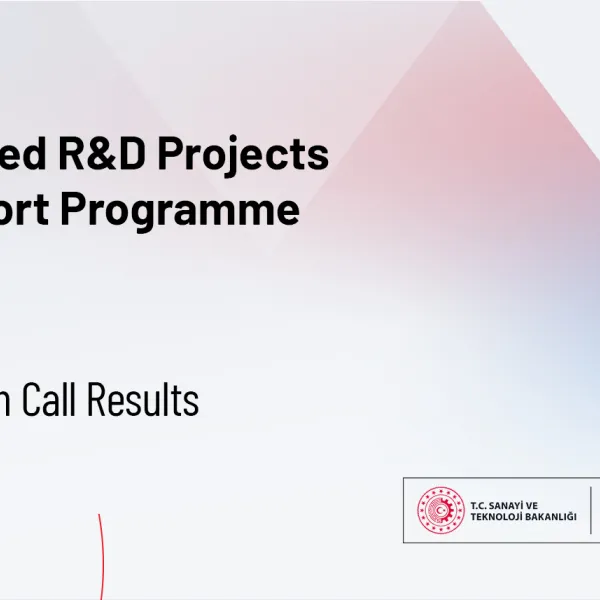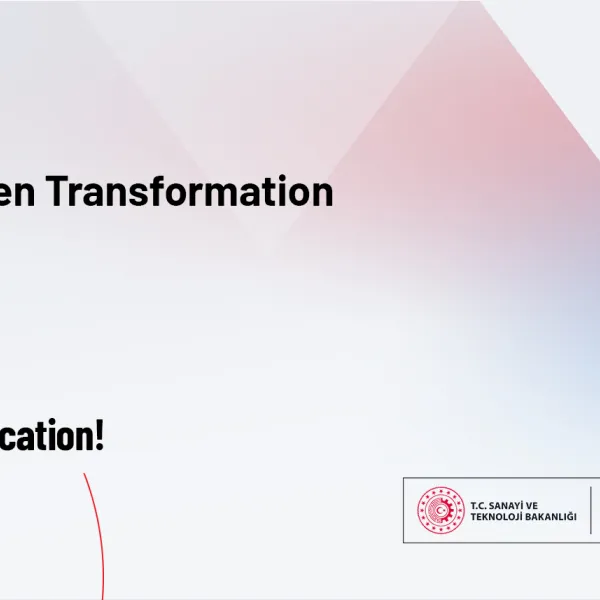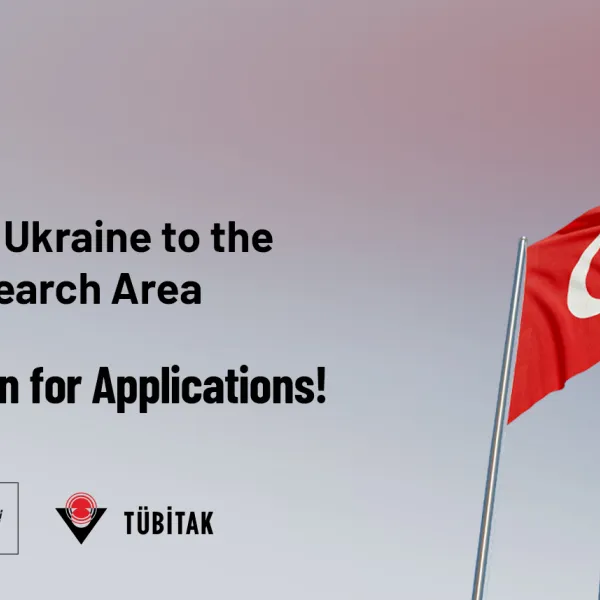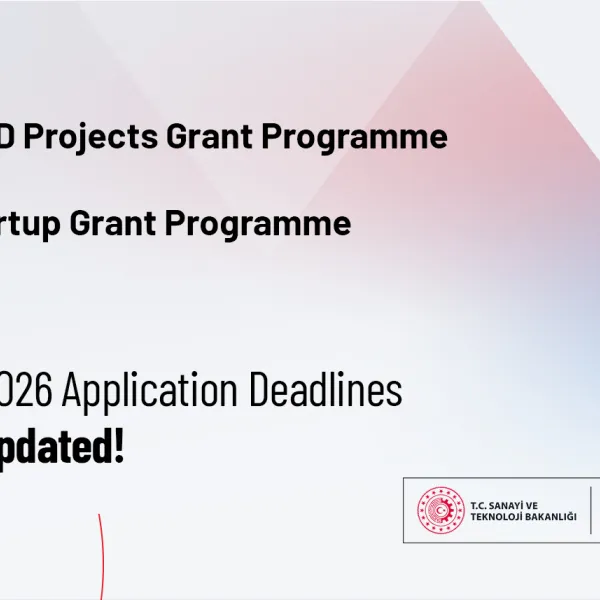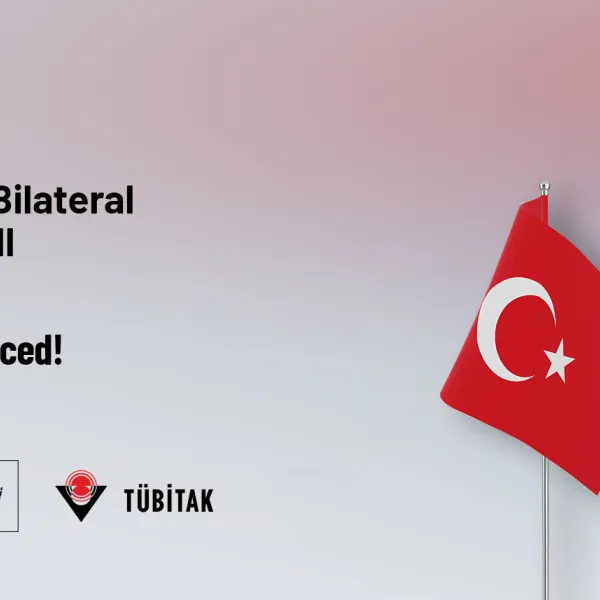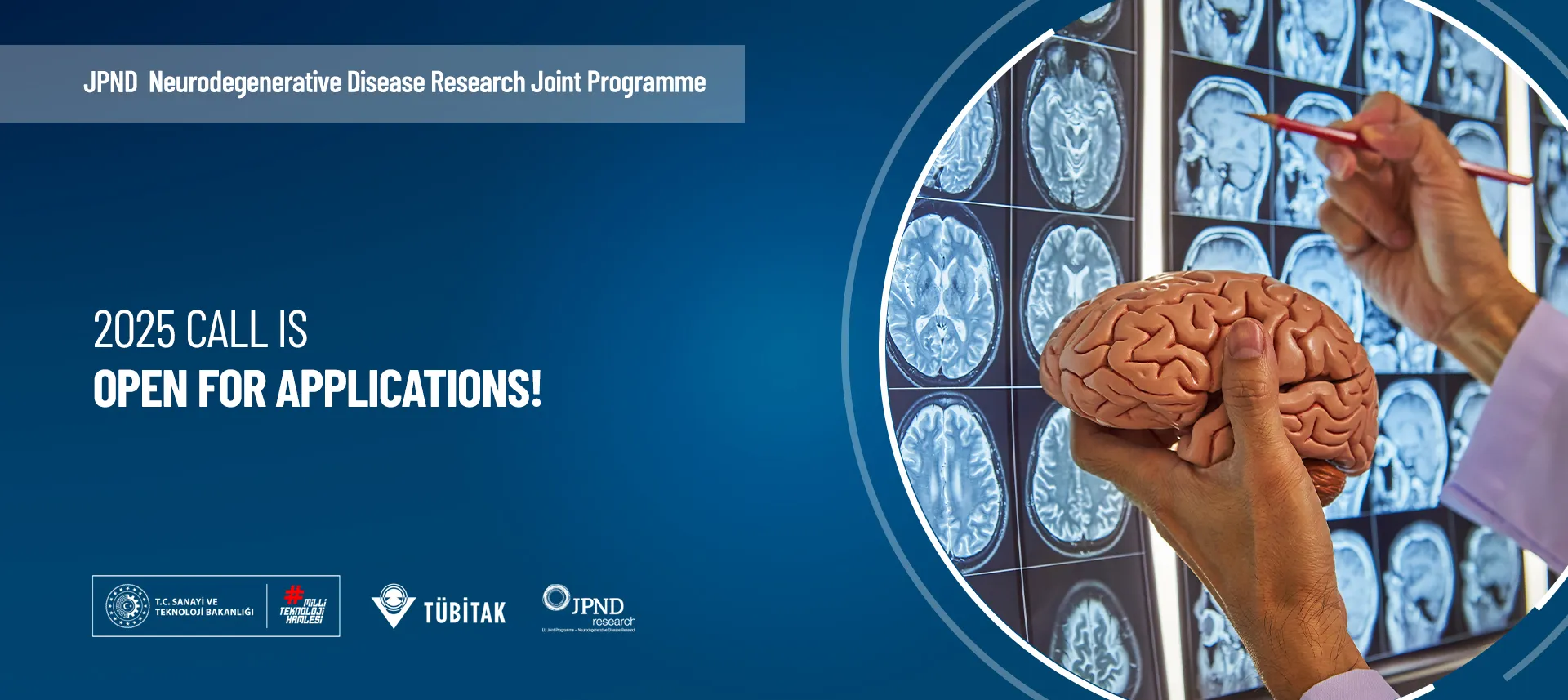
The Joint Program for Neurodegenerative Disease Research (JPND) is a structure that organizes and manages a series of research programs active in the field of neurodegenerative disease research in Europe. Within the scope of the initiative in question, calls for projects are being opened to make neurodegenerative potential research more efficient and to increase the treatment capability.
In this context, research projects under the title of " Health And Socıal Care Research Wıth A Focus On The Moderate And Late Stages Of Neurodegeneratıve Dıseases" will be supported in the JPND 2025 call for international joint research projects (https://neurodegenerationresearch.eu/initiatives/annual-calls-for-proposals/2025-research-call-on-h…).
Submission deadline for pre-proposals to Call Secretariat: March 4 2025 (12:00, CET) (https://ptoutline.eu/app/jpnd2025)
Submission deadline for pre-proposals to TÜBİTAK: 12 March 2025 (23:59, TSİ) (https://uidb-pbs.tubitak.gov.tr)
Submission deadline for full proposals: 24 June 2025 (12:00, CET) (https://ptoutline.eu/app/jpnd2025)
TÜBİTAK application deadline for full proposals will be announced for our researchers who are successful in the second stage international scientific evaluation process.
Within the scope of the JPND 2025 Call, proposals submitted to this call must focus on one or several of the following neurodegenerative diseases: Alzheimer’s disease and other dementias, Parkinson’s disease and PD‐related disorders , Prion diseases, Motor neuron diseases, Huntington’s disease, Spinocerebellar ataxia (SCA), Spinal muscular atrophy (SMA). Proposals submitted under this call may include, but are not limited to, the following types of research:
Deciphering the interplay of physical health, biological, environmental, social and economic factors in determining cognitive decline and behavioral and psychological symptoms;
Investigating the specific or changing needs in regard to different subtypes of neurodegenerative diseases (e.g., different types of dementia), disease trajectories and treatment regimens (e.g., drug-treatment vs. non-drug treatment);
Identifying transition points of deterioration that occur throughout the disease progression and establishing measures for effective interventions and prevention;
Development of guidelines and harmonization of standardized operation procedures for the use of socio-cognitive testing across regions and countries in Europe or beyond;
Development of measures for rehabilitation and reablement and effective support from the perspective of patients and family caregivers to establish person-centered and public health approaches;
Establishing effective models of care by studying quality of care (e.g., in nursing homes) or the effects of prevention or delay of admission to a nursing home;
Identifying suitable housing at different stages of the disease progression, from adapted housing solutions to nursing homes and dementia villages;
Identification and implementation of new digital measurement tools and socio-cognitive digital markers with cross-cultural validation based on patient-reported outcome measures;
Identifying and addressing known barriers to e.g., improve the accessibility of services, the development of advanced care planning, the interaction between social and care services as well as between persons with dementia and their immediate environment and the public (stigmatization);
Consideration of ethical issues;
Unraveling regional differences in the effectiveness and impact of health and social care interventions and developing strategies for evidence-based adaptation and implementation in e.g., different settings, regions and systems.
Projects to be submitted to the call must meet the following criteria:
Each proposal must involve a minimum of three and a maximum of six regular partners, including the coordinator, from at least three different countries participating in this call. However, if the proposal involves at least one regular partner from an EU-13 country (Hungary, Latvia and Poland) or from Turkey, the maximum number of regular partners is extended to seven.
For reasons of transnational balance, no more than two regular partners from the same country are allowed to join a proposal.
In addition, external collaborators (e.g., research groups from countries not participating in this call) may participate in proposals. External collaborators must secure their own funding. They must state in the proposal if these funds are already secured or how they plan to obtain funding.
Joint transnational research proposals can be funded for a period of up to three years.
Important information
Project proposals to be submitted from our country will be supported within the scope of TÜBİTAK 1071 Program.
For projects involving partners from Turkey, it is mandatory to apply to both the call secretariat and TUBITAK.
National project applications can only be made using electronic signature (e-signature) via the Project Application System (https://uidb-pbs.tubitak.gov.tr).
Before applying, national application rules must be examined in detail. If the application rules are not followed, the application may be returned without being evaluated.
Call Contacts
For information about International Application Conditions and JPND:
Elif GÜNEY TAMER
0312 2981384
For information about National Application Conditions:
Öznur TİFTİK
0312 2981519

